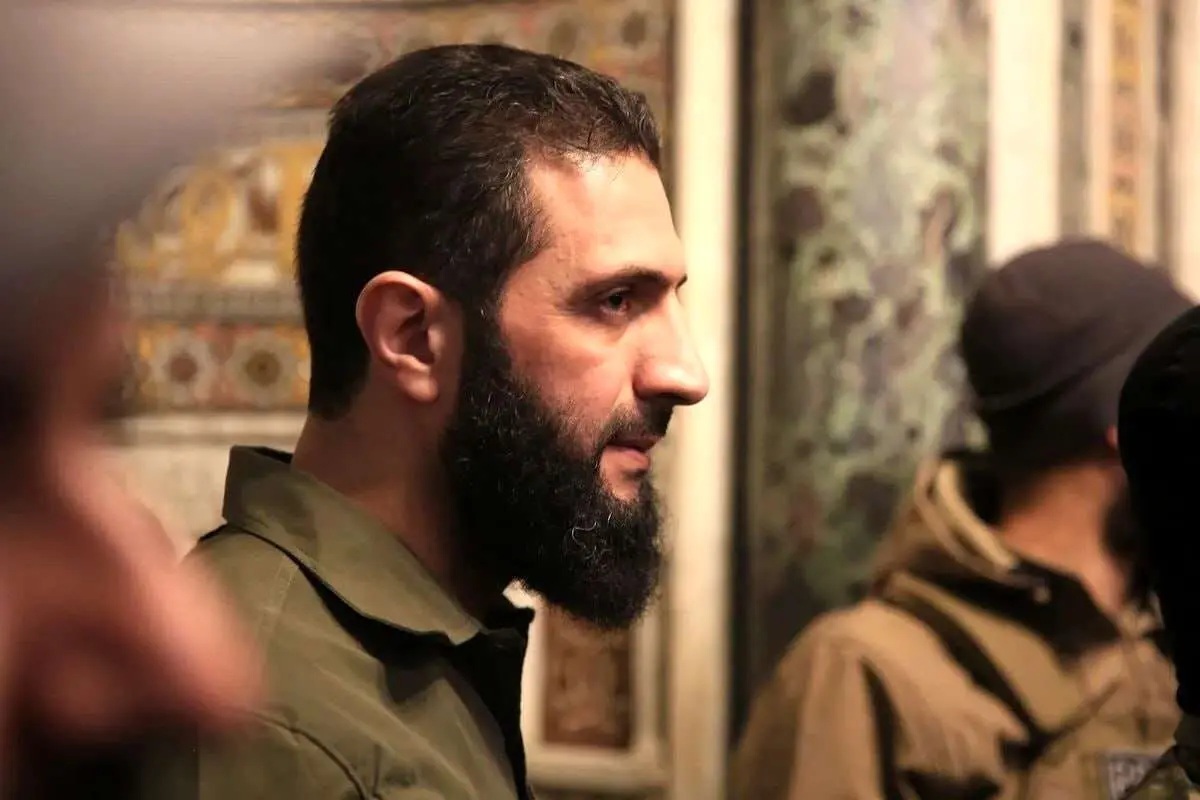Alwaght- In December 2024, with the fall of Damascus to rebel militias led by Hayat Tahrir Al-Sham (HTS) and formation of interim government headed by Abu Mohammad al-Jolani (officially Ahmad al-Sharaa), many observers of Syria affairs suggested that the country slid into a dark period of instability. This actually took place and shortly after takeover of power by the militias, not only the country has not moved to stability, but also it drifted to instability, collapse of sovereign institutions, and gradual partition in an alarming pace.
The lie of security
One of al-Jolani's first promises upon taking power was to restore security and end internal conflicts. But in practice, his rule has brought only spreading insecurity, escalating ethnic and sectarian violence, and the suppression of minorities. Over the past year, government-controlled territories have witnessed a rise in terrorist attacks, sporadic clashes, and targeted assassinations. The new government's security structure has become an instrument for crushing political and ethnic opponents, rather than providing stability.
Meanwhile, minority groups, especially Kurds, have suffered the most. Discriminatory policies, their exclusion from power structures, and turning a deaf ear to their legitimate demands have reopened the deep wounds of past decades.
Selling national sovereignty in a market of concessions
In foreign policy, embarking on an approach of making unlimited concessions to regional and international actors, al-Jolani has practically sold Syria's sovereignty and territorial integrity. In the shadow of his silence, large tracts of land in the south were militarily occupied by Israeli regime and the Israeli army keeps advancing further. This Israeli military progress deep in Syria faces neither military nor political resistance from new Damascus leaders.
Also, ignoring national sensitivities, al-Jolani in his interactions with foreign powers, particularly Turkey, has given privileges that practically impair national independence. Ankara, which has always opposed Kurdish autonomy, now with a green light from al-Jolani is seeking to impose its conditions on the Syrian military and government.
An agreement never implemented
A March 2025 agreement between al-Jolani and Mazloum Abdi, commander of the Syrian Democratic Forces (SDF), to integrate the Kurdish militias into the national army has effectively stalled, despite extensive publicity.
According to the deal, the SDF would join as a special corps within the national army, the return of displaced persons would be guaranteed, and balanced representation for Kurds, Arabs, and other groups in government and parliament would be established. In practice, however, none of these promises have materialized.
The SDF, which hold roughly 30 percent of the country's territory and maintains a cohesive administrative and security structure, demanded integration as a single bloc and the preservation of their decentralized local governance system. Damascus, backed by Turkey, has instead insisted on the individual integration of fighters and the dissolution of independent Kurdish structures.
This stalemate reflects a deeper crisis within the new Syrian state's identity.
Now a question presents itself: Will the new government remain a centralized structure as in the past, or will it move toward a decentralized model? The answer to this question will determine not only the fate of the Kurdish population but also the future of Syria's national unity.
Rather than easing tensions, these disagreements have fueled an increase in sporadic clashes in the border regions of Deir Ez-Zor and Hasaka and have even raised the prospect of a renewed Turkish military intervention.
Return of ISIS shadow
Meanwhile, ISIS terrorist organization as the third angle of insecurity equation is resurging. Reports talk about reactivation of sleeper cells of this organization across Syria. Given the structural weakness of the security forces and possible escape of ISIS prisoners from Kurdish-run prisons, the shadow of return of this terrorist organization on Raqqa, Deir Ez-Zor, and Iraqi borders is growing more than any other time.
This comes as the al-Jolani government has diverted a significant portion of its military capacity away from countering the ISIS threat, instead focusing on internal suppression and political infighting. This neglect has paved the way for the resurgence of one of the region's most dangerous security threats.
Going beyond mere negligence, Western media reports suggest that certain militant factions and commanders within the new regime are covertly contributing to the reinforcement and reorganization of ISIS. This has even raised suspicions of a hidden division of labor between al-Jolani's government and the US to deliberately destabilize Iraq's security.
Al-Jolani on a mission for partition?
The combination of recent developments raise an essential question: Is al-Jolani simply too weak to manage the country or is he is executing an unstated mission to partition and break Syria apart? Either way, the outcome is one: weakening of national power, insecurity expansion, and opening the doors to foreign intervention.
Under these circumstances, if the Syrian people cannot emerge from al-Jolani's shadow and seize the initiative to rebuild national institutions, guarantee minority rights, and counter foreign threats, then Syria's future will be nothing more than a repeat of the Libyan or Somali scenario.
Today, Syria more than any other time needs a patriotic, comprehensive, and independent leadership. It needs a leadership that does not seek commenting personal power and serving the historical enemies of Syria but preserving national unity, countering foreign aggression, returning Syria to its historical pro-resistance identity in the Arab world, and securing rights of all Syrians without discrimination. But al-Jolani’s one-year performance has another thing to say: He not only lacks such perspective, but also steps in an opposite path.



























